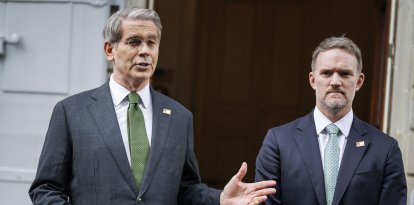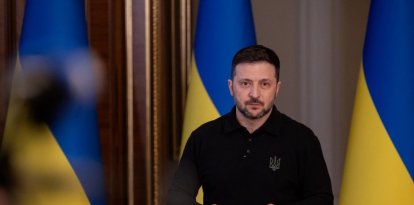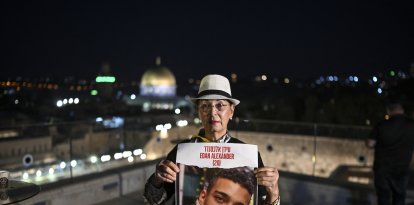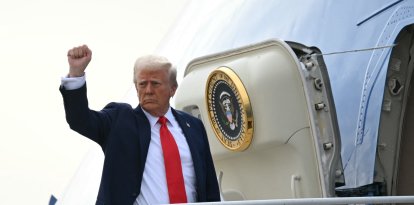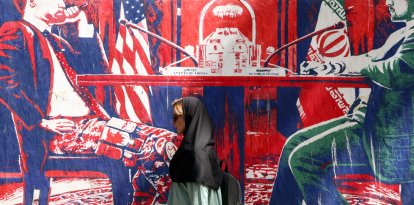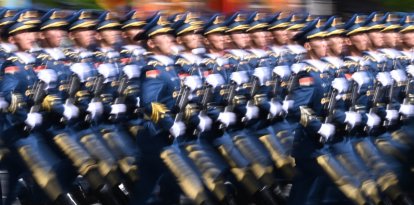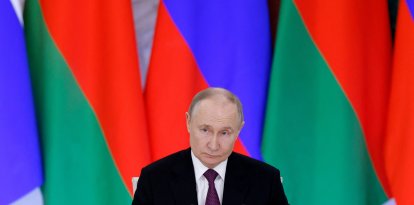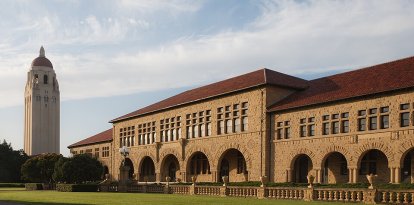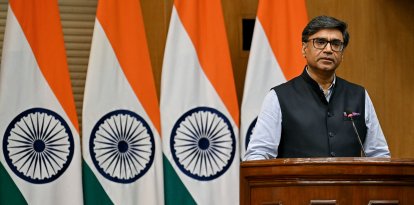Elections in Iran: The presidency will be determined in a runoff after historically low turnout in first round
Although the president is relegated to the background in the Iranian system, he could be key in deciding the successor to the highest authority, Supreme Leader Ali Khamenei.
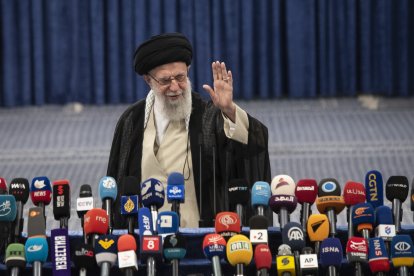
Iranian Supreme Leader Ali Khamenei at a conference after casting his vote.
The Iranian presidency will be decided in a runoff on July 5. Participating in those elections will be MP Masud Pezeshkian, with a reputation as a reformist, and the ultra-conservative Said Jalili, who finished the first round with 42% and 38% of the vote, respectively.
To avoid a second round, they would have needed to exceed 50%. Even further behind and now out of the race were the current Speaker of Parliament Mohamad Bagher Ghalibaf and cleric Mostafa Purmohammadi.
The elections were marked by a historically low turnout. Only 40% of the population that was called to vote went to the polls, surpassing the negative record of 51% in 2021.
Ali Khamenei, the country's top religious and political leader, launched a campaign to promote voter turnout, emphasizing the importance of "enthusiastic participation" by voters for national unity and to send a message to external enemies.
As part of these efforts, images of the supreme leader voting and of his speech afterwards calling voters to the polls in a last minute appeal were shared:
Dissidents, especially from the diaspora, had asked their compatriots not to participate in the elections called after the unexpected death of former President Ebrahim Raisi, known as "The Butcher of Tehran." The hashtag #ElectionCircus spread on X, highlighting some of this criticism.
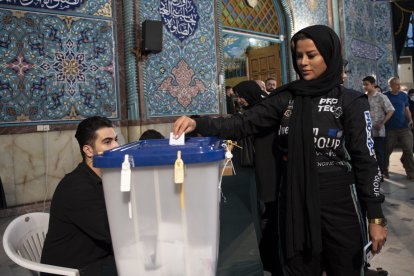
Voting center in Tehran
Is there a chance for change?
Friday's winner is the candidate most distant from Khamenei and the rest of the Iranian regime's leadership. A heart surgeon and war veteran, Pezeshkian (69 years old) is not a novice politician either. He is currently serving as a deputy of a northeastern city and was health minister between 2001 and 2005.
Although he is defined as a "reformist" by those who claim that he wants to get closer to the West, his criticism of the government during the protests after the death of Mahsa Amini, who died in police custody for not wearing a hijab, multiple analysts warn that he remains faithful to the current theocratic system.
After casting his vote, for example, he assured in words reported by The Times of Israel: "We will respect the hijab law, but there should never be any intrusive or inhumane behavior toward women."
Even if he wanted to make major changes, experts point out, the president's role is secondary. The supreme leader is the one who makes the big decisions in the country. In addition, Pezeshkian has aroused suspicions for being one of the few candidates approved by a control body to run in the elections. Only six out of 80 were endorsed.
Ultimately, they do emphasize that the result of the vote could become more important when it is time to replace Khamenei, who at 85 years of age has been in power for more than 30 years.
RECOMMENDATION
